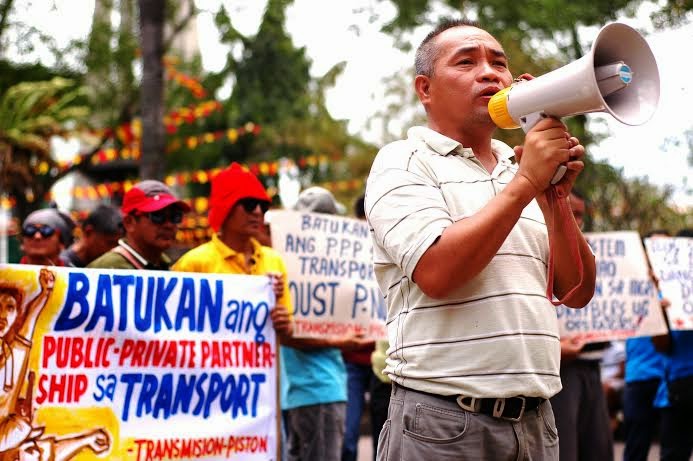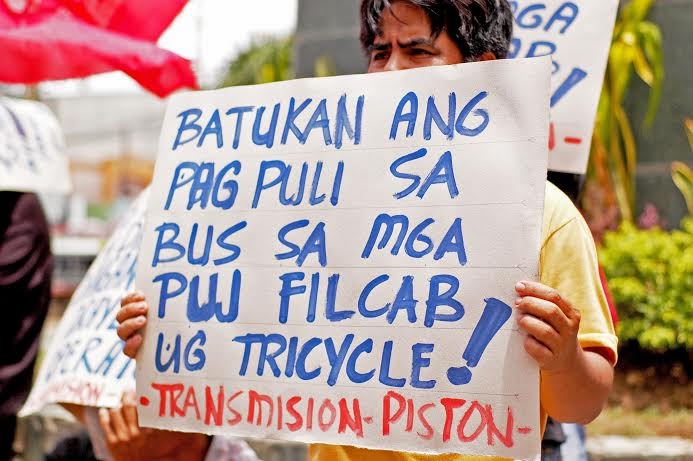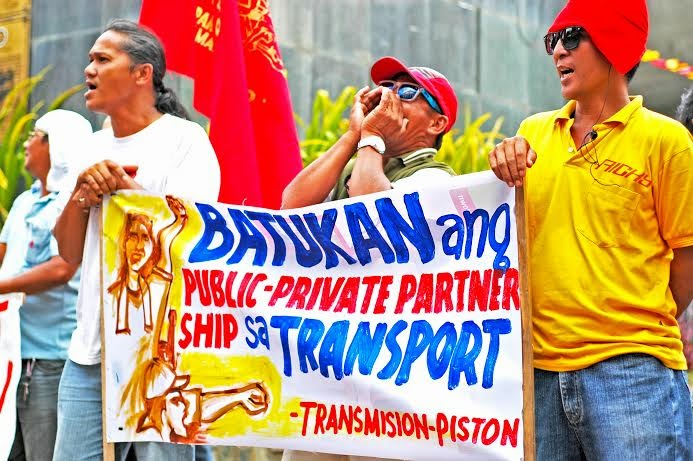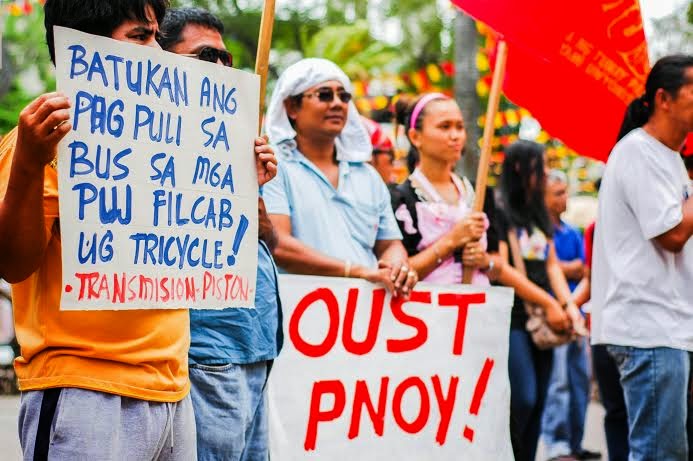
DAVAO CITY (Mindanao Examiner / Mar. 18, 2014) – A Filipino transport and drivers’ group called Transmision Piston-Southern Mindanao have protested Tuesday the Urban Sustainable Transport Project being pushed by the government through the so-called public private partnership.
The group said the project would not only have a serious impact to public transport drivers, but will also affect the poor majority here. Transport drivers have been steadily protesting the project.
But according to the Asian Development Bank which is involved in the project, there is a need for a sustainable transport system in Davao City.
In the project rationale, it said: “Strong economic growth has generated rapidly growing demand for travel within urban centers such as Davao. Worsening congestion, higher travel times and costs, deteriorating local air quality, and a failing road safety record are all symptoms of a transport system under pressure. Sustainable urban transport systems have modern, efficient, and affordable public transport services at their core.”
“Public transport is the main mode of transport in Davao, accounting for 80% of trips. The public transport system has tricycles primarily for short trips and jeepneys, or multi-cab vehicles for longer distances within the city. Regulations governing Davao s public transport system are outdated, the city lacks an effective transport masterplan, and institutions responsible for managing urban transport presently do not coordinate their planning and enforcement. Current public transport routes, the coverage area, connectivity, and the frequency of service are poorly planned and fail to provide satisfactory service.”
The project – with a 1$ million technical fund – is being implemented by the ADB, Department of Transportation and Communications, Davao City government and the Japan Fund for Poverty Reduction.
“Public transport is not a choice for many; it is the only mode available to them. The vast majority of Davao’s population does not have access to private vehicles or motorcycles and, thus, are captive public transport users,” said Kunio Senga, Director General of ADB’s Southeast Asia Department. “It is our duty to provide services that are safe, clean and affordable, and allow passengers to travel to the places they need to go at times when they need to be there.” (Mindanao Examiner)



